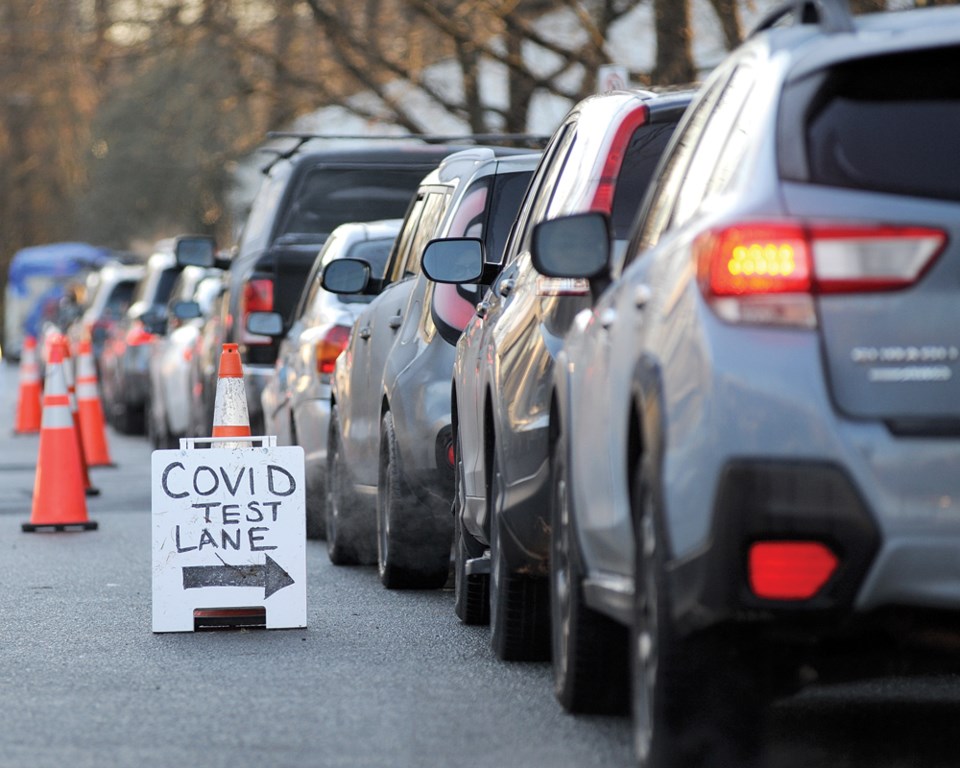The lion's share of people who are getting tested for coronavirus in British Columbia do not test positive for the virus, says the province's top doctor.
While the Omicron variant is spreading rapidly in communities across B.C., most people who get tested for COVID-19—a staggering 70 per cent—do not test positive.
Provincial health officer Dr. Bonnie Henry told reporters in a press briefing Friday (Jan. 21) morning that most people with mild symptoms do not need to get tested and the majority of individuals who are being tested do not have the virus.
"Even with Omicron spreading, most people being tested for COVID 19 don't have it," she said. "Yes, we have our highest test positivity rates ever. It's in the 20 per cent to 30 per cent range.
"But that means that 70 per cent of people with symptoms who are being tested don't have COVID-19. So we need to put that in context as well."
The health officer's comments on testing followed a presentation regarding who is at greatest risk of severe illness from a COVID-19 infection. People who are over 80 are 28 times more likely to be hospitalized if they are infected, she stressed, noting that age remains the single most important risk factor for developing a severe illness from the virus.
There is also an increase in the risk of hospitalization for people who have immune compromising conditions, including people who have received transplants, have diabetes, respiratory illnesses, and heart conditions, added Henry. Pregnant women are also at risk of having a more severe illness.
"On the positive side, we see across the board again, that vaccination is highly protective," she emphasized. "That is encouraging."
A booster dose "dramatically decreases" the risk of hospitalization from a COVID-19 infection, noted Henry.
What to know about COVID-19 testing and isolation guidance in B.C.
If you have mild symptoms and do not need a COVID-19 test, the BC Centre for Disease Control (BCCDC) advises you to stay home until you feel well enough to return to your regular activities.
Close contacts do not need to self-isolate, regardless of vaccination status, but should self-monitor. In fact, everyone should routinely monitor symptoms of COVID-19, whether they are notified of a COVID-19 exposure or not; stay home if you feel unwell.
Testing is most needed for people who have symptoms of COVID-19 and are at risk of more severe disease and are currently eligible for treatment. Individuals who live or work in high-risk settings, such as healthcare workers, are also advised to get tested.
The aforementioned guidance is part of the BCCDC's changes on self-isolation recommendations and how to manage COVID-19 illness.
If you feel unsure about your symptoms you can use the Self-Assessment Tool, contact your health care provider, or call 811.
If you find it hard to breathe, have chest pain, can’t drink anything, feel very sick, and/or feel confused, contact your health care provider right away or go to your local emergency department or call 911.




